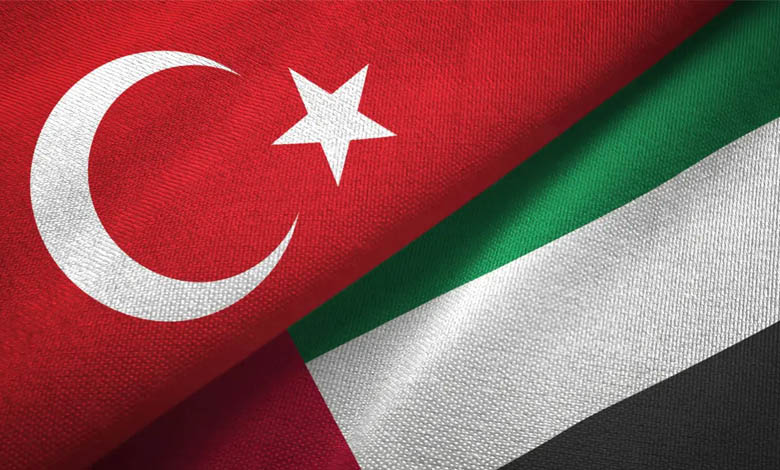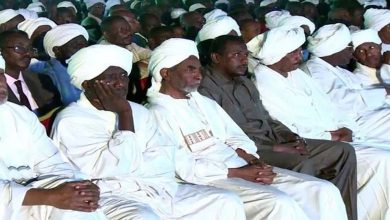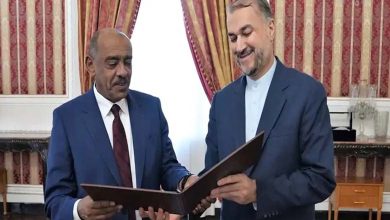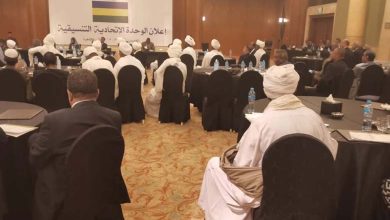Turkey-United Arab Emirates: An overview of relations between the two nations

Turkish media reported that Abou Dabi’s Crown Prince and Sheikh Mohammed ben Zayed, Vice President of the UAE Armed Forces, will visit Turkey for the first time after 10 years, for a meeting with President Recep Tayyip Erdogan, to examine many issues and cooperation between the two countries.
The visit comes after several recent developments in relations between the two countries, during which the UAE National Security Adviser, Sheikh Tahnoun Ben Zayed Al Nahyane, and Turkish President Recep Tayyip Erdogan met on August 18 in the Turkish presidential compound in Ankara.
Anwar Gargash, diplomatic advisor to the UAE president, expressed that economic co-operation and partnerships were the focus of the Turkish president’s meeting with the UAE national security advisor, describing the meeting as historic.
President Erdogan discussed with the UAE delegation, headed by the National Security Advisor, ways to strengthen bilateral relations, especially economic and trade cooperation and investment opportunities in the fields of transport, health and energy, in order to achieve the common interests of the two countries, as well as a number of regional issues of common concern, the Emirates News Agency reported.
-
The visit of Mohammed Ben Zayed to Turkey, the reasons and indications
-
Mohammed Ben Zayed’s visit to Turkey.. What has Ankara offered to achieve this?
Reasons for Turkey’s Concessions:
The policies of the Turkish regime during the last decade, especially after the events of the Arab Spring, when its approach changed from zero problems with the neighboring countries, to direct intervention in the affairs of the countries of the region, the expansionist trend through the military presence in Syria and Libya, the expansion of the military presence in northern Iraq, as well as the hostility of the major regional powers, led to economic deterioration, popular anger at home, suffocating regional isolation, and the escalation of the intensity of the Western countries, the United States and Turkey.
The crises that Turkey went through seem to have prompted the regime to reconsider its foreign relations, as shown by the barrage of statements Ankara made about its desire to open a new page with the Arabs, to bridge the differences and put an end to the tension with Egypt. It has also begun attempts to break the deadlock in relations with both the United Arab Emirates and Saudi Arabia, as Turkey sought to invest in Gulf reconciliation at the Arab Summit held in Saudi Arabia earlier this year.
In 2006, the Turkish president expressed: We have no hidden or declared biases, or enmities and vague calculations against anyone. In all sincerity and cordiality, we call on everyone to work together to build a new phase in the framework of stability, security, justice and respect, stressing our openness to the return of relations with Egypt, the UAE and Saudi Arabia, without any conditions.
Regarding Abu Dhabi Crown Prince Sheikh Mohammed Ben Zayed’s upcoming visit to Turkey, writer and expert in Arab affairs Muhammad Izz Al-Din said that Turkey has lost many people in the past period towards the isolation that it experienced as a result of the interventions that Turkey was carrying out in the affairs of States, and that matters have reached the point of threatening the stability of those States. He added that after severe crises that Turkey witnessed, especially on the economic level, Ankara is seeking to fill the gap in its relations with the East by offering Erdogan concessions and acquiescing to Arab decisions to open new relations with them.
-
Sheikh Mohammed ben Zayed declares a return to normal life after getting over the coronavirus crisis
-
Sheikh Mohammed ben Zayed discuss strategic cooperation between the UAE and the UK
Izz Al-Din added: The observer of Turkish affairs believes that Ankara has made a series of statements about its desire to open a new page with the Arabs, to bridge the differences, to end the tension with Egypt, to open relations with both Saudi Arabia and the United Arab Emirates, and to announce its desire to open channels of communication with the Arab countries to reconcile views, as will be revealed by the forthcoming visit of Sheikh Mohammed Ben Zayed to Ankara.
Turkey-United Arab Emirates relations:
In the past four years, Turkey and the UAE have maintained stable trade and economic relations, and expanded to include new aspects and trends during the coronavirus period, experts say, noting that the best evidence of this is the increase in the volume of Turkish exports to the UAE, which rose to about $295 million last June, compared to last May, whose exports amounted to about $243.5 million.
According to Turkish Foreign Ministry data, the volume of trade between the two countries reached nearly $7.3 billion in 2019, $7.6 billion in 2018 and a record high in 2017, after reaching $14.8 billion.
Economists confirm that according to these figures, the UAE is ranked 12th largest importer of Turkish goods in the world, second only to Iraq, ninth largest exporter of Turkish goods globally, and first among Arab countries.
Economists confirm that according to these figures, the UAE is ranked 12th largest importer of Turkish goods in the world, second only to Iraq, ninth largest exporter of Turkish goods globally, and first among Arab countries.
-
Mohammed ben Zayed checks services provided to Afghan families
-
“Mohammed ben Zayed Humanities” launches women’s course in Islamic civilization
Turkish exports to the UAE amounted to about $3.5 billion in 2019, while Turkish imports from the UAE in the same year amounted to $4.33 billion.
Turkish exports to the UAE ranged from precious stones, metals, machinery and electrical appliances, while the UAE’s main exports to Turkey were gold, aluminum, jewelry, oil, mineral oils, chemicals and iron.
The United Arab Emirates ranked first among the Gulf countries, with the largest investor in Turkey amounting to $4.3 billion. Qatar and Saudi Arabia ranked second and third respectively, according to official data from the Turkish Statistical Institute.
According to experts, the UAE’s investments in Turkey have diversified, covering the finance, banking, renewable energy, real-estate projects, food industry, medicine, consumer goods, logistics, ports, and retail sectors.
UAE investments in Turkey are concentrated in shopping malls, hotels and tourist resorts, as well as buying and pumping investments into leading Turkish companies in the technology and digital sector.
Turkish investments in the UAE:
In contrast, the UAE is an important investment market for Turkish investors. It is mostly concentrated in the construction sector, with Turkish contracting companies in the UAE implementing about 100 projects worth more than $8.5 billion by 2013.
In addition to the construction sector, Turkish companies are also investing in the UAE and opening headquarters and warehouses there, experts said.
Economists say that the UAE’s most recent investment in Turkey was made by Phoenix, the UAE’s national electric company, after it acquired Turkey’s leading light transport company, Palm, on August 2nd. The company was offered 43 million Turkish lira ($5 million).
On November 19, 2019, the Turkish business group Yaşar Holding, of the Pınar brand, which specializes in the cheese and dairy products industry, announced a direct investment in the capital of the United Arab Emirates, Abou Dabi, to build a $30 million cheese factory.
On the official level, Tugay Toncher, Turkey’s Ambassador to the UAE, confirmed that the trade between Turkey and the UAE increased nearly 100% during the first six months of this year.
-
For the tenth year, Arab youth choose the Emirates as their favorite destination for life
-
The United Arab Emirates begins the first experiment to produce local immune cell therapy
The Ambassador stated that his country’s participation in Expo 2020 in Dubai marked a new era of cooperation and strengthening relations with the United Arab Emirates, and noted that the global event offered an opportunity to showcase the characteristics of Turkey’s diversified economy, which encompassed many sectors, including tourism, jewellery, technology and construction.
He express that Dubai World Expo 2020 contributes to the growth of Turkish tourism, which is a very important sector for the country.











